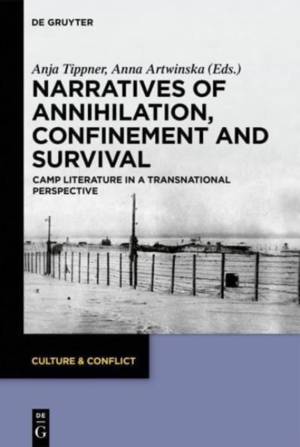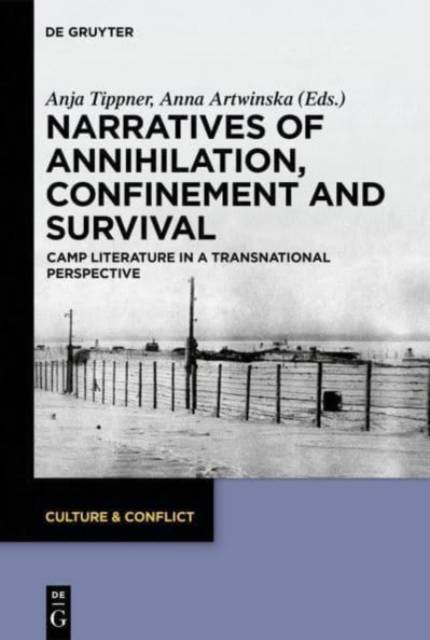
- Afhalen na 1 uur in een winkel met voorraad
- Gratis thuislevering in België vanaf € 30
- Ruim aanbod met 7 miljoen producten
- Afhalen na 1 uur in een winkel met voorraad
- Gratis thuislevering in België vanaf € 30
- Ruim aanbod met 7 miljoen producten
Zoeken
Narratives of Annihilation, Confinement, and Survival
Camp Literature in a Transnational Perspective
€ 116,45
+ 232 punten
Omschrijving
The concept of "camp narratives" rather than "Holocaust narratives" or "Gulag narratives" is based on the assumption that literary accounts of camp experiences share common traits, aesthetically as well as thematically. The book presents readings of camp literature that underscore the similarities between texts about Soviet gulag camps, Nazi camps and about other camp experiences. While literature about Nazi concentration camps still serves as a point of reference for camp narratives in the same way that the Holocaust serves as a point of reference for other genocidal operations, socialist labor and penal camps have become transnational lieux de mémoire in their own right since 1989. This volume intends to provide a theoretical frame as well as an overview of several important European camp literatures and case studies of iconic camp narratives and to take a comparative and transnational perspective on the genre of the camp narrative.
Specificaties
Betrokkenen
- Uitgeverij:
Inhoud
- Aantal bladzijden:
- 286
- Taal:
- Engels
- Reeks:
- Reeksnummer:
- nr. 14
Eigenschappen
- Productcode (EAN):
- 9783110628241
- Verschijningsdatum:
- 20/05/2019
- Uitvoering:
- Hardcover
- Formaat:
- Genaaid
- Afmetingen:
- 156 mm x 234 mm
- Gewicht:
- 621 g

Alleen bij Standaard Boekhandel
+ 232 punten op je klantenkaart van Standaard Boekhandel
Beoordelingen
We publiceren alleen reviews die voldoen aan de voorwaarden voor reviews. Bekijk onze voorwaarden voor reviews.










